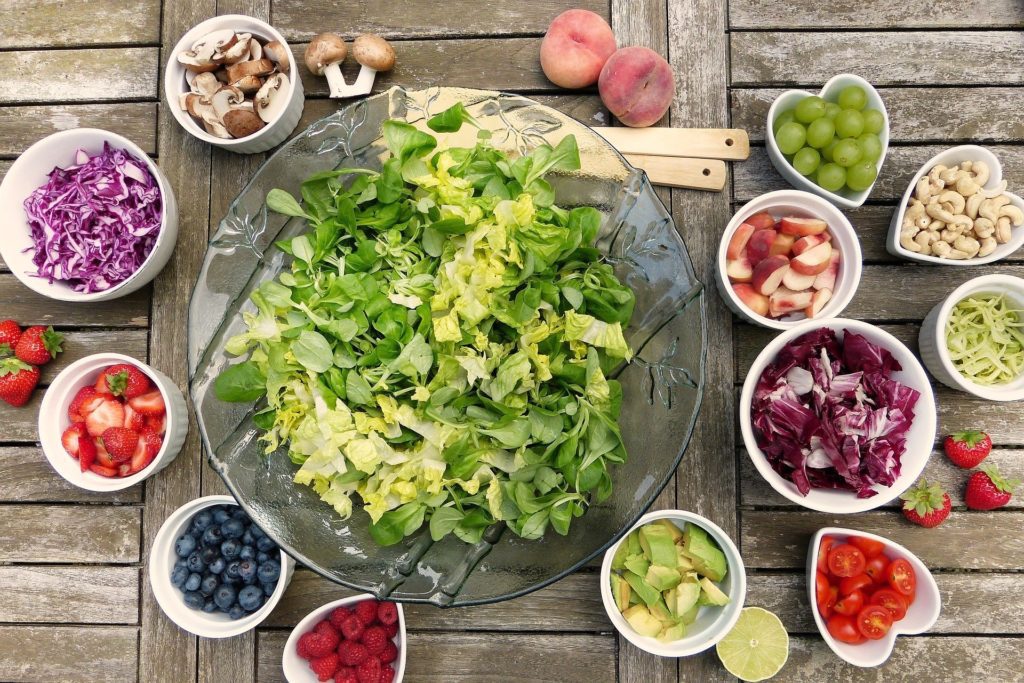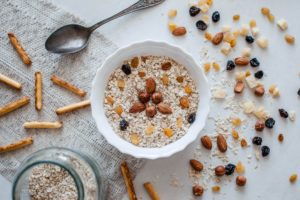Many people with irritable bowel syndrome (IBS) feel that their food options are limited due to their bodies’ problematic ways. While some food can trigger nasty flare-ups, there are still many foods that people with IBS can eat. It can be difficult to pinpoint triggers, so many dietitians recommend an elimination diet, which helps identify individual trigger foods. It is a process that you must go through to learn which foods you can eat with IBS.
However, there is a range of foods that should not cause an issue for people with IBS, unless other intolerances are present. There is a range of foods they can still eat, and dining out, or eating and friend’s houses should still be possible.
If you suffer from IBS, you may be able to minimize symptoms with a healthy and balanced diet rich in fiber and low in fat, with plenty of fruit and vegetables. For some people eating smaller meals more frequently also helps.
Table of Contents
Avoid ready meals:
One important factor is the chemicals and additives found in readymade foods. This is why it’s vital that you equip yourself to cook as many home meals as possible to reduce your symptoms.
One great way to encourage yourself to cook more is to treat yourself to some fashionable, quality kitchenware. If you either don’t have the tools you need to cook, or have poor quality ones, how will that help you stay motivated? Just like when you buy anything new, you’re inclined to want to get as much use out of it as possible. The products on Oliver’s Kitchen are becoming fast favorites amongst food lovers as they’re built to last, so you know you’re not just going to have to replace them a month down the line. You can grab cutting boards to help you with vegetable prep, as well as storage options for meal planning. They even have award-winning Ice Cube trays if you want to kit your whole kitchen out! Hopefully, these will invigorate you and make you want to spend more time cooking.
Another way to help avoid ready meals is to utilize health meal delivery services. You’ve likely heard of companies such as Hello Fresh, who deliver all the ingredients you need straight to your door. You may be surprised to learn that there are also specialist services out there who deliver Low-FODMAP meals that are perfect for IBS sufferers.
IBS and diet are different for everyone, and triggers can vary from person to person. However, dietitians, patients, and doctors have identified foods that do not seem to cause a problem for most people. If you do have an adverse reaction to any suggested foods, then take steps to avoid them.
IBS diet suggestions:

- Food preparation – Prepare foods by boiling, baking, grilling, or steaming with little to no oil.
- Eat plenty of vegetables – Although cauliflower, cabbage, and broccoli could cause too much gas for some people. Preparing vegetables in a variety of ways is key to keeping your diet interesting.
- Fruit without the skins – Fruits are not a trigger for many people, although others have found problems with apples, melons, and citrus fruits. Start by avoiding these and then slowly add them in, so that you can identify if they are triggers for you.
- Increase fiber – Many people with IBS benefit from increasing fiber, such as whole grains, nuts and beans, and pulses. However, when you increase fiber, you should do so slowly and compensate by drinking plenty of water. However, Bran fiber can aggravate IBS for some people, so watch out for this food’s reactions.
- Gluten – Usually, IBS suffers can tolerate gluten, which is found in pasta, bread, rice, crackers, rye, whole wheat, white, crackers, etc. However, some people with IBS also suffer from other intolerances such as gluten intolerance or celiac disease. In which case, they will not be able to tolerate these foods. While food intolerances can be difficult to identify, your doctor can test you for celiac disease, so if you think these foods are a trigger, you should speak to your doctor.
- Seeds – Some find that seeds are a trigger for them, but you can experiment to see if these affect you or not.
- Lactose Intolerance – People with IBS should tolerate lactose, which is found in cheese and milk. However, lactose intolerance is common. Therefore, these types of food could cause an issue for you. You could try switching to lactose-free products to see if you feel better, or you could speak to your pharmacist about medication to help your body break down lactose.
- Meat – You should be able to tolerate most meat, fish, and chicken. However, a lot of processed meats such as sausage and bacon could cause a flare-up.
- Spiced, sauced, or fried – For some people, heavily spiced, sauced, or fried foods are triggers.
- Snacks – If you are looking for IBS-friendly snacks, try rice cakes, frozen yogurt, low-fat yogurt, pretzels, fruit, and baked potato chips.
Low Fodmap
Many people with IBS try a low FODMAP diet, a diet low in Fermentable Oligo, Di, and Mono-saccharides, And Polyols (low FODMAP). The idea is that food fermenting in the gut leads to uncomfortable side effects. Read more about the low FODMAP diet here.
A FODMAP diet is strict and limited. However, once your symptoms are under control, you can slowly reintroduce foods so that you can identify whether or not they are triggers.
IBS Diet While Out and About

When eating out, choose foods that are similar to what you would eat at home. Order sauces and dressings on the side, avoid oil-heavy foods, ask for limited spices, avoid fried food, have a small portion of dessert, and don’t overeat!
When you are a friend’s house, let the host know about your food needs, or if you can’t, then stick with the foods you know are ok and or limit yourself to a small portion of trigger foods.
Although identifying triggers and eating right can be tricky, it is important to remember that there are still many foods you can still prepare and eat with IBS and enjoy eating. Start with a balanced and regular diet and then start getting creative. If you are still struggling, keep a food-symptom diary to help rule out the trigger foods and identify your safe foods.
Featured Image by rawpixel.com



